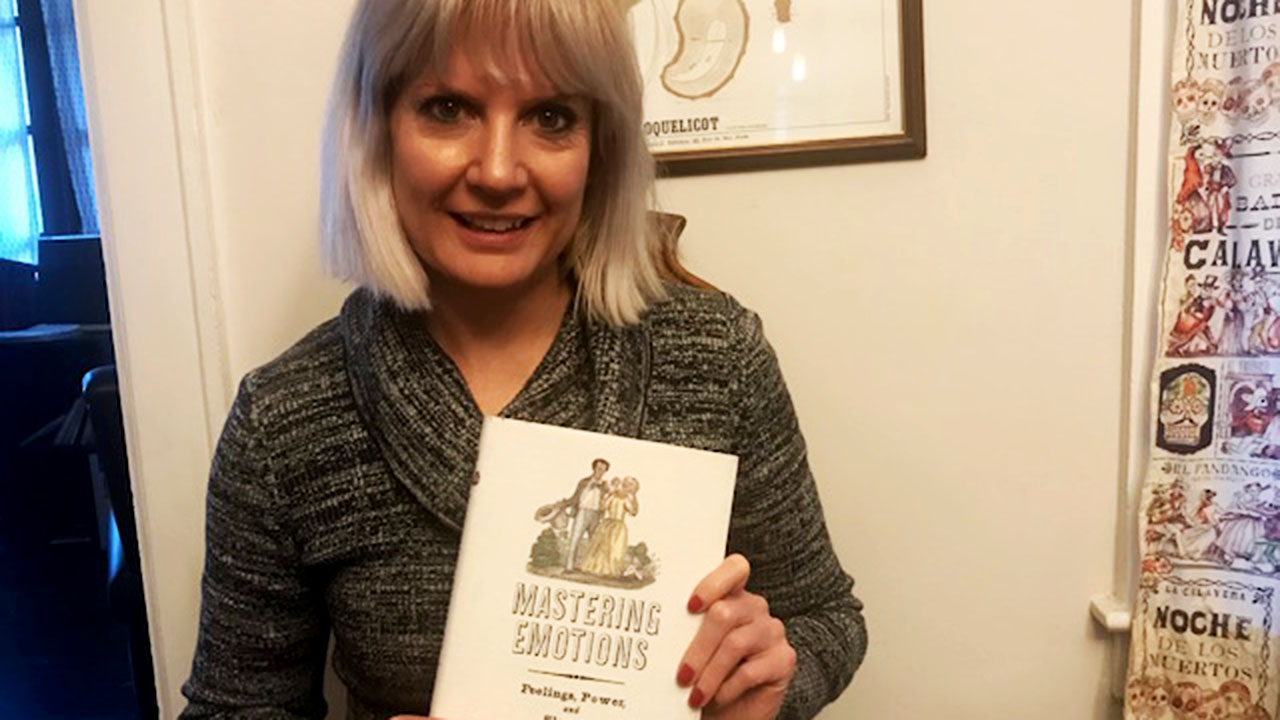OU professor talks ‘Mastering Emotions’ in new book
Author Erin Austin Dwyer examines feelings, power, and slavery in the United States

In her recently published book, Mastering Emotions: Feelings, Power, and Slavery in the United States, Oakland University Professor Erin Austin Dwyer examines the interactions between slaveholders and enslaved people, and between White people and free Black people, to expose how emotions such as love, terror, happiness, and trust functioned as social and economic capital for slaveholders and enslaved people alike.
“People can all too often think of a history as a field focused on reciting dates and names, but I think, when done well, history is analytical, but also creative and empathetic,” said Dwyer, an associate professor of history at OU.
Dwyer began working on Mastering Emotions: Feelings, Power, and Slavery in the United States as a dissertation when she was earning a doctorate at Harvard University in American Studies.
“I was initially interested in the relationships between slaveholders and enslaved people who were related by blood since it was such a common occurrence and I expected it to be a fraught relationship,” Dwyer said. “But as I researched I found equally tangled, nuanced, emotional relationships between slaveholders and enslaved people who were not blood kin.”
Around that time, one of Dwyer’s advisers, Vincent Brown, gave her a book on the history of emotions and the French Revolution.
“Though it wasn't about my time period or area of focus, he assured me that it would be useful and it was,” she said. “That book helped me see how power operates through emotions and emotional relationships, and how feelings can be a category of analysis. From there, Mastering Emotions was born.”
While writing the book, Dwyer relied heavily on primary sources to think through how people felt, and what norms about emotions and relationships were established. That meant archive trips to look at letters and diaries from slaveholders, and it meant reading hundreds of slave narratives. But it also meant reading fiction to try to think about relationships and feelings in creative and dynamic ways.
“I hope people reading this book will take away that emotions matter, that they aren't just physical responses that individuals have, but that emotions are social and temporal constructs and that power operates through emotions,” Dwyer said. “I hope with my area of study in particular people will see the long-term impact of the emotional politics of slavery, including how the legacy of debates over race, freedom, and emotion continue to resonate to this day.”
Mastering Emotions: Feelings, Power, and Slavery in the United States is available on the University of Pennsylvania Press website, as well as Amazon.com.


 November 9, 2021
November 9, 2021